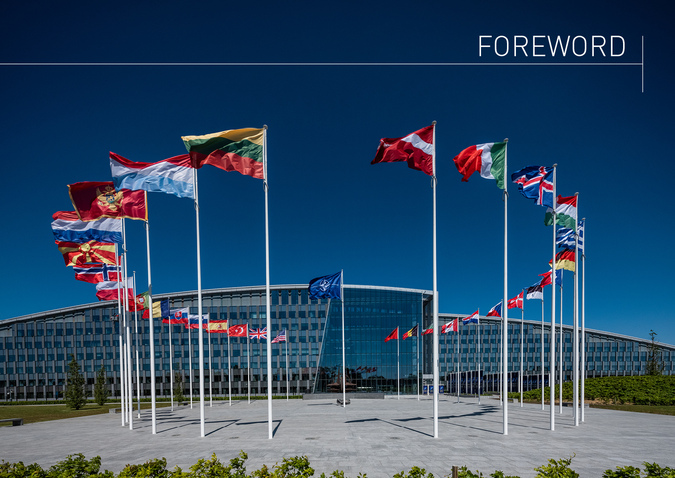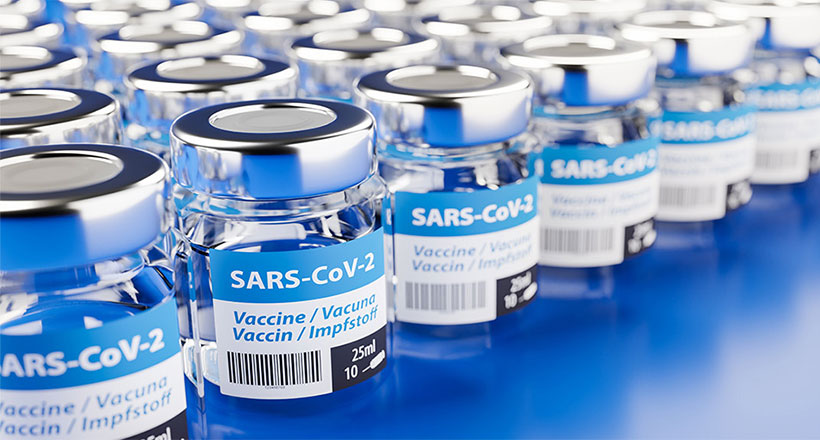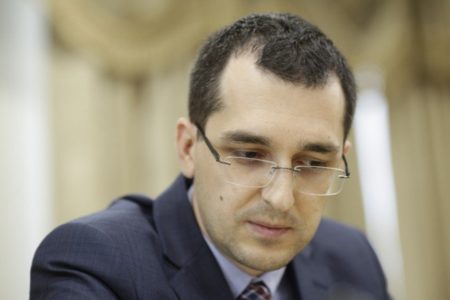Secretarul General al NATO, Jens Stoltenberg, a prezentat marti raportul pentru anul 2020, un document esential pentru pacea si securitatea aliata : 30 de tari, 1 miliarde de oameni, 2 continente.
Am avut privilegiul sa adresez prima intrebare Secretarului General, despre amenintarile Rusiei si Chinei, modalitatea in care NATO va raspunde razboiului hibrid declansat de cele 2 state agresoare in spatiul aliat.
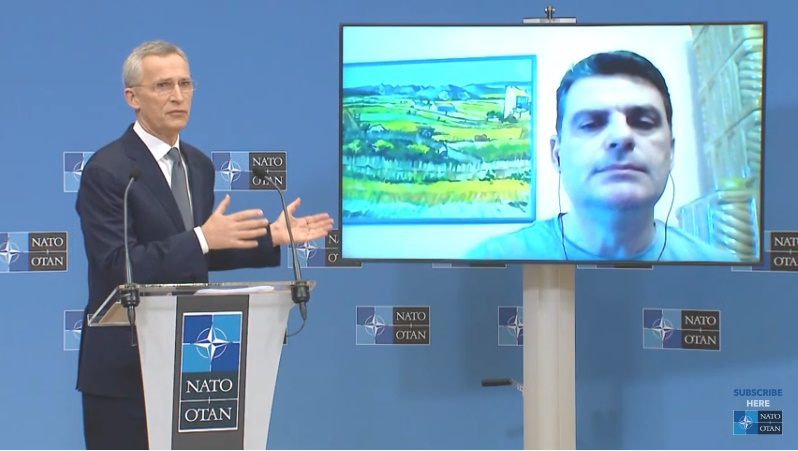 Iata intrebarea si raspunsul lui Jens Stoltenberg, de la min 5,40 :
Iata intrebarea si raspunsul lui Jens Stoltenberg, de la min 5,40 :
Calea European mentioneaza si faptul ca Stoltenberg a declarat marți că se așteaptă ca liderii celor 30 de state ale Alianței Nord-Atlantic să cadă de acord asupra unei agende ambițioase care să includă și consolidarea măsurilor de descurajare și apărare pe flancul estic în contextul propunerii înaltului oficial aliat pentru o finanțare comună a acestor măsuri în partea estică a Alianței.
“Discuțiile sunt în curs de desfășurare și nu voi specula privind rezultatul lor. Vom aborda multe probleme diferite, schimbările climatice și consultările politice, tendințele și evenimentele, tehnologia, reziliența și multe alte probleme. Este prea devreme pentru a trage concluziile, dar sunt încrezător că, atunci când liderii se vor întâlni mai târziu în acest an, vor conveni asupra unei agende ambițioase și orientate spre viitor pentru a se adapta și a consolida în continuare NATO, un element este modul de consolidare a descurajării și apărării“, a spus Stoltenberg, într-o conferință de presă prilejuită de raportul anual al NATO, răspunzând unei întrebări din partea CaleaEuropeană.ro.
Săptămâna trecută, agenția de presă germană DPA relata că un anume număr de aliați au transmis explicit în ultimele săptămâni că nu sunt pregătiţi să susţină reforme de amploare care să sporească semnificativ bugetul comun pentru apărare şi disuasiune. Luna trecută, Jens Stoltenberg le-a prezentat miniștrilor apărării din țările aliate propunerea sa de creștere a fondurilor NATO pentru apărarea flancului estic, inclusiv în Marea Neagră.
Stoltenberg a subliniat marți că atunci când vine vorba de apărare și descurajare a spus că “are sens s[ finanțăm mai mult împreună, iar finanțarea comună a NATO se referă la a face lucruri împreună.
“Cred că acest lucru va demonstra națiunilor noastre, dar și oricărui adversar potențial, unitatea și puterea descurajării noastre”, a mai spus el.
Secretarul general al NATO, care a discutat săptămâna trecută cu președintele român Klaus Iohannis despre agenda viitorului summit NATO din acest an, a spus că discuțiile în cadrul Alianței pe acest subiect sunt constructive și că subiectul NATO 2030, care include și propunerea unei finanțări comune a măsurilor de apărare și descurajare.
Tema va fi discutată și la reuniunea miniștrilor afacerilor externe de săptămâna viitoare, a mai spus Stoltenberg, prima astfel de reuniune în persoană a țărilor NATO de la debutul pandemiei și întâia participare a secretarului de stat american Antony Blinken la o reuniune aliată.
Jens Stoltenberg a prezentat marți raportul anual de activitate al Alianței Nord-Atlantice pentru 2020, accentuând că într-un an dominat de pandemia COVID-19, prioritatea NATO a fost să contribuie la asigurarea faptului că criza din domeniul sănătății nu a devenit o criză de securitate., în același timp sprijinind răspunsul civil la pandemie. Înaltul oficial aliat a indicat că, în ciuda impactului economic al COVID-19, aliații NATO continuă să investească în apărare, aliații europeni și Canada sporindu-și cheltuielile de apărare în termeni reali cu 3,9% din 2019 până în 2020, reprezentând al șaselea an consecutiv de creștere a bugetelor militare.
Asemenea anilor precedenți, raportul anual prezentat de secretarul general cuprinde 59 de referiri la România, la contribuția țării noastre în NATO, inclusiv în contextul pandemiei și la măsurile luate de aliați pentru a asigura securitatea țării noastre.
Raportul de anul acesta (disponibil aici) plasează România pe locul al 8-lea în rândul țărilor aliate care alocă minim 2% din PIB pentru apărare, dintr-un total de 11 state membre.
Alocând 2% din PIB pentru cheltuieli militare, România rămâne în primii zece aliați NATO în ce privește procentul din bugetul Apărării investit pentru înzestrare militară. De asemenea, țara noastră se află pe locul al 15-lea în ce privește alocarea a minim 20% din bugetul apărării pentru dezvoltarea capabilităților militare, cheltuind 23,1% din buget pentru înzestrare.
Raportul anual cuprinde și un sondaj privind percepția și susținerea publice față de NATO în țările aliate, România aflându-se, de asemenea, în top, 80% dintre români susținând că ar vota pentru rămânarea țării în NATO, iar 70% sunt de acord că NATO menține țara noastră în siguranță.
The Secretary General’s Annual Report 2020
On 16 March 2021, Secretary General Jens Stoltenberg released his Annual Report for 2020.
Below you will find short descriptions of – as well as direct links to – the elements of the annual report.
- Foreword
- For all who serve
- NATO 2030
- Deterrence, Defence and Dialogue
- Fighting the COVID-19 Pandemic
- Engaging with NATO Citizens
- Investing in Defence
- Fit for Purpose
- Projecting Stability
- Promoting Equality
- Organisation
- Annexes
You can also download the full annual report.
NATO 2030: Future-proofing the Alliance
In 2020, the Alliance – like the rest of the world – was impacted by the COVID-19 pandemic. Not only did the virus threaten our societies and economies, it also magnified existing security trends and tensions. But it did not prevent NATO from doing its job: our ability to defend the Euro-Atlantic area remains undiminished, and throughout the year, the Alliance worked to help save lives and keep our people safe.
Across NATO, almost half a million troops supported the civilian response to the pandemic. We delivered much-needed medical equipment and supplies, transported patients and medical personnel, secured borders and built field hospitals to treat many thousands of patients. We established a pandemic response plan, a stockpile of medical supplies and a trust fund for the purchase of urgently needed items. Ventilators and other equipment from the stockpile have been delivered to Allies and partners.
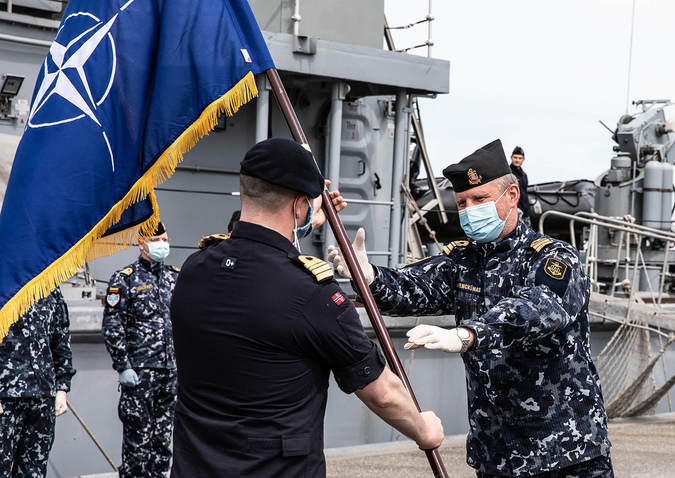
For All Who Serve
NATO’s mission is to ensure that the Alliance’s territory and populations remain safe in a world where peace and security cannot be taken for granted. Our free societies and the rules-based international order need to be backed by credible transatlantic defence. NATO continues to rely on the personnel of Allied and partner countries’ armed forces to fulfil this mission.
Throughout 2020 and despite the COVID-19 pandemic, men and women in uniform from Europe and North America stepped up to the mark. They played an essential part to help fight the pandemic and save lives, including by transporting muchneeded medical supplies and equipment, and building military field hospitals. In addition to supporting civilian efforts to combat the pandemic, they also continued to provide security for NATO’s nearly one billion people with strong deterrence and defence – on land, at sea, in the air, in space and cyberspace. Our soldiers, sailors, aircrew and marines served in NATO military commands, exercises, missions and operations to keep us all safe.
We know that, should the need arise, they will stand together to defend and protect each other, keep our nations safe and our Alliance strong. We owe them and their families deep gratitude for their service and sacrifice.
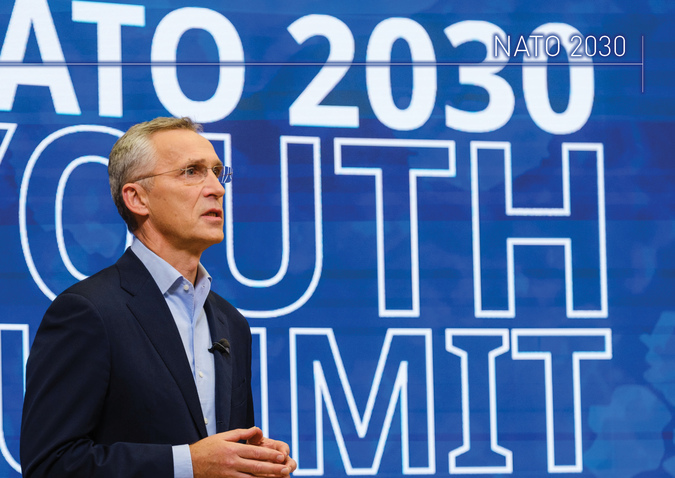 At the December 2019 Leaders Meeting, NATO Heads of State and Government asked Secretary General Jens Stoltenberg to lead a forward-looking reflection on NATO’s future. This is why he launched ‘NATO 2030,’ his initiative to further strengthen the Alliance in an increasingly more unpredictable and competitive world.
At the December 2019 Leaders Meeting, NATO Heads of State and Government asked Secretary General Jens Stoltenberg to lead a forward-looking reflection on NATO’s future. This is why he launched ‘NATO 2030,’ his initiative to further strengthen the Alliance in an increasingly more unpredictable and competitive world.
NATO faces the most complex security environment since the end of the Cold War. Existing threats have not gone away. Russia’s behaviour remains assertive and destabilising, and terrorism continues to represent a global security challenge and a threat to stability. At the same time, the rise of China is shifting the global balance of power, with implications for the Alliance’s security, values and way of life. It is a world of growing global uncertainty, more sophisticated and disruptive cyber and hybrid threats, and exponential technological change rapidly transforming the way wars are fought. An environment where climate change will continue to exacerbate existing security challenges and generate new ones.
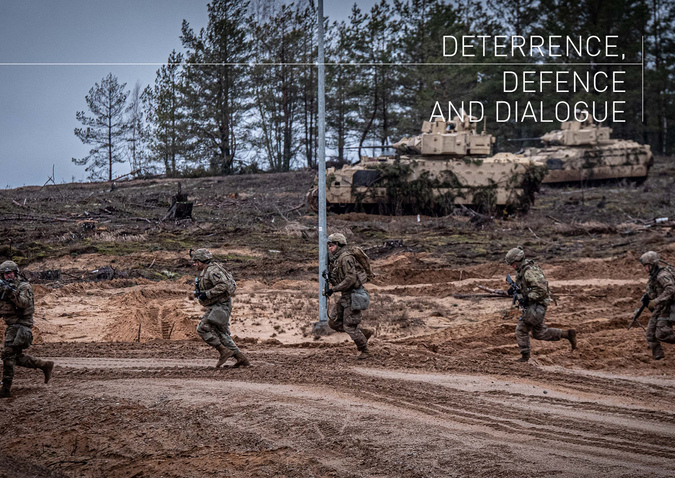 NATO’s main responsibility during the COVID-19 pandemic has been to fulfil its core tasks, while ensuring that the health crisis does not become a security crisis. The Alliance maintained its operational readiness, protected its forces and sustained its missions and operations, from the battlegroups in the east of the Alliance, to Kosovo, Afghanistan and Iraq.
NATO’s main responsibility during the COVID-19 pandemic has been to fulfil its core tasks, while ensuring that the health crisis does not become a security crisis. The Alliance maintained its operational readiness, protected its forces and sustained its missions and operations, from the battlegroups in the east of the Alliance, to Kosovo, Afghanistan and Iraq.
In 2020, NATO further strengthened its collective deterrence and defence posture, on land, at sea, in the air, in space and in cyberspace. It continued to increase the responsiveness and readiness of its forces, to enhance the Alliance’s ability to rapidly reinforce any Ally that may come under threat, and to invest in its hybrid and cyber defences to remain at the forefront of technological change.
Substantial progress was achieved over the year to further strengthen Allied resilience, essential to NATO’s overall ability to deter and defend against both conventional and hybrid threats.
Work also advanced to address the security implications of Russia’s growing arsenal of nuclear-capable missiles. The Alliance is responding by strengthening its advanced conventional capabilities, investing in new platforms – including fifth-generation fighter aircraft – and adapting its exercises, intelligence, and air and missile defence posture. It is doing so while ensuring its nuclear deterrent remains safe, secure and effective. At the same time, NATO remains strongly committed to effective arms control, disarmament and non-proliferation, and continues to call for all actors, including Russia and China, to engage constructively.
Read the chapter “Deterrence, Defence and Dialogue” in the Annual Report (PDF)
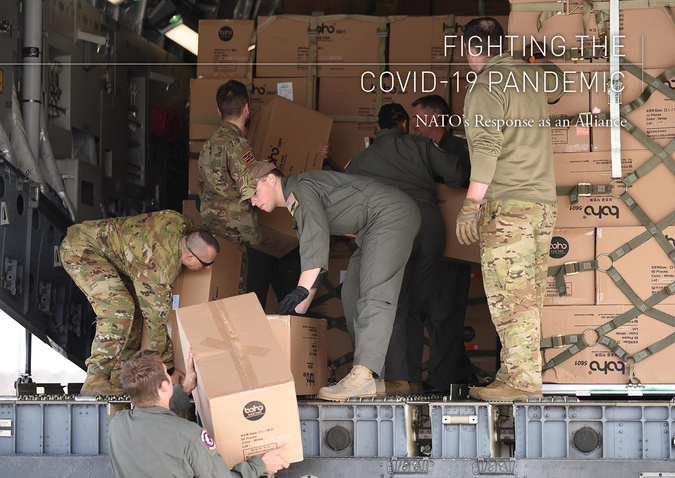 In addition to fulfilling its main responsibility to prevent the public health crisis from becoming a security crisis, NATO drew on its experience in crisis management and disaster relief to both adapt to the crisis and support Allies’ and partners’ efforts, helping to fight the pandemic and save lives.
In addition to fulfilling its main responsibility to prevent the public health crisis from becoming a security crisis, NATO drew on its experience in crisis management and disaster relief to both adapt to the crisis and support Allies’ and partners’ efforts, helping to fight the pandemic and save lives.
From the beginning of the crisis, NATO and Allied military personnel have been supporting civilian efforts: providing military airlift, organising flights to deliver critical supplies, setting up field hospitals, sharing medical expertise, and helping to develop innovative responses. Over half a million military personnel supported civilian authorities during the first wave of the COVID-19 crisis.
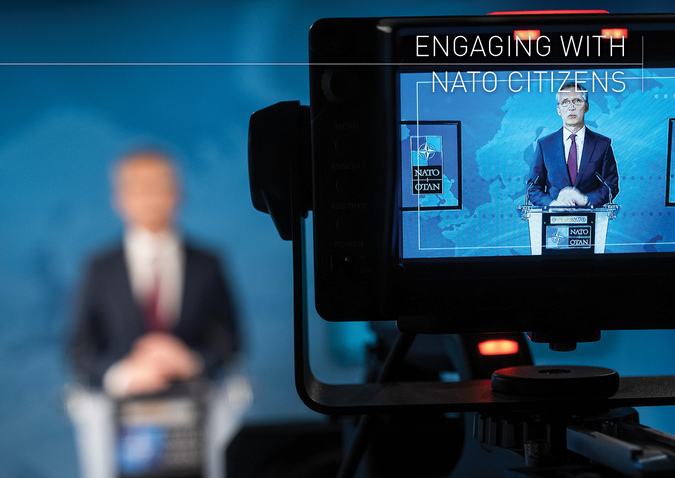 Ensuring that citizens in Allied countries understand and support NATO’s mission is an important aspect of the Alliance’s work. NATO actively engages with people around the world to explain and promote the Alliance’s efforts and activities in Allied countries and beyond. At the same time, it works hard to counter disinformation with fact-based, credible public communications.
Ensuring that citizens in Allied countries understand and support NATO’s mission is an important aspect of the Alliance’s work. NATO actively engages with people around the world to explain and promote the Alliance’s efforts and activities in Allied countries and beyond. At the same time, it works hard to counter disinformation with fact-based, credible public communications.
Read the chapter “Engaging with NATO Citizens” in the Annual Report (PDF)
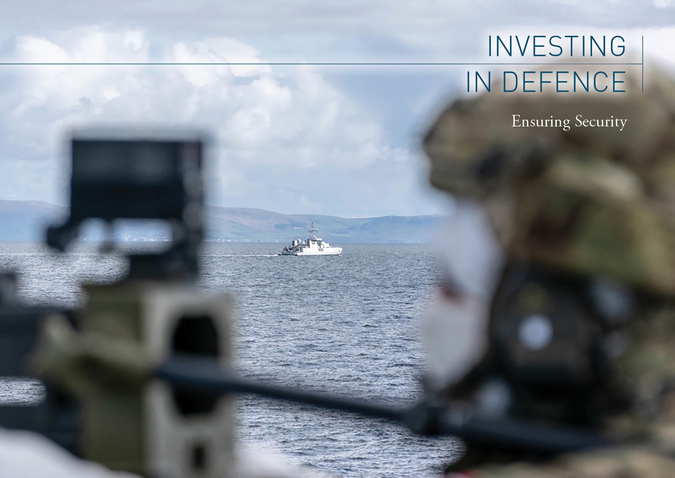 The security threats and challenges that led to the adoption of the Defence Investment Pledge have not subsided with the pandemic. On the contrary, COVID-19 has exacerbated existing threats and made the security environment more unpredictable. The need to keep investing in defence remains essential.
The security threats and challenges that led to the adoption of the Defence Investment Pledge have not subsided with the pandemic. On the contrary, COVID-19 has exacerbated existing threats and made the security environment more unpredictable. The need to keep investing in defence remains essential.
2020 marked the sixth consecutive year of growth indefence spending by European Allies and Canada, with an increase in real terms of 3.9% from 2019 to 2020. Moreover, 11 Allies met the guideline of spending 2% of their Gross Domestic Product on defence, up from just three Allies in 2014.
Read the chapter “Investing in Defence: Ensuring Security” in the Annual Report (PDF)
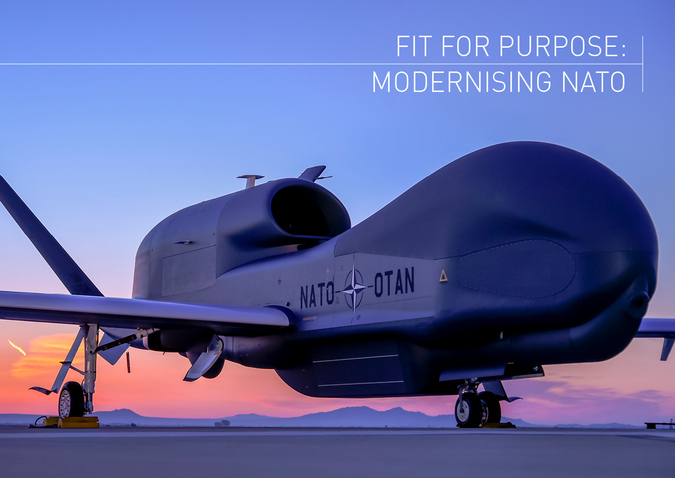 One of NATO’s greatest strengths is its ability to adapt to the changing security environment – something it has done again and again since its creation in 1949.
One of NATO’s greatest strengths is its ability to adapt to the changing security environment – something it has done again and again since its creation in 1949.
In 2020, NATO adapted to meet the challenges of a more complex security environment. The Alliance continued to modernise its structures and capabilities and redoubled its efforts with respect to emerging and disruptive technologies.
Read the chapter “Fit for Purpose: modernising NATO” in the Annual Report (PDF)
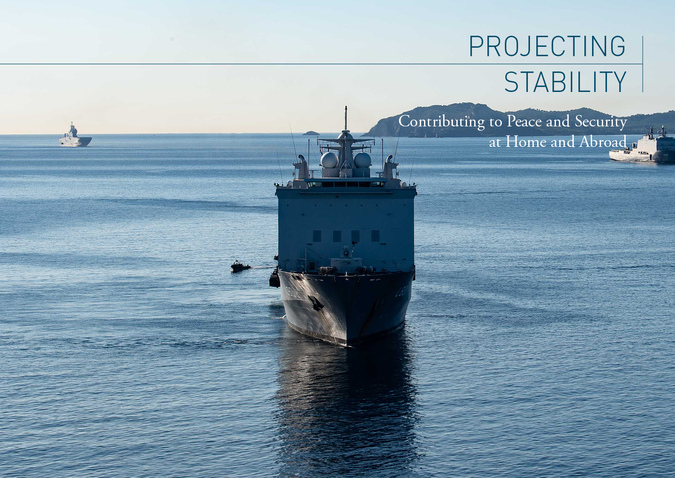 To guarantee the security of its almost one billion citizens, the Alliance must effectively tackle global challenges to the security of Allies, including terrorism, and be able to manage crises and contribute to peace and security beyond its borders. NATO projects stability through political engagement and practical cooperation with a wide network of partners and international organisations, both in its neighbourhood and globally. In 2020, the Alliance continued to assist its partners in building stronger defence institutions, improving governance, enhancing resilience and more effectively contributing to the fight against terrorism.
To guarantee the security of its almost one billion citizens, the Alliance must effectively tackle global challenges to the security of Allies, including terrorism, and be able to manage crises and contribute to peace and security beyond its borders. NATO projects stability through political engagement and practical cooperation with a wide network of partners and international organisations, both in its neighbourhood and globally. In 2020, the Alliance continued to assist its partners in building stronger defence institutions, improving governance, enhancing resilience and more effectively contributing to the fight against terrorism.
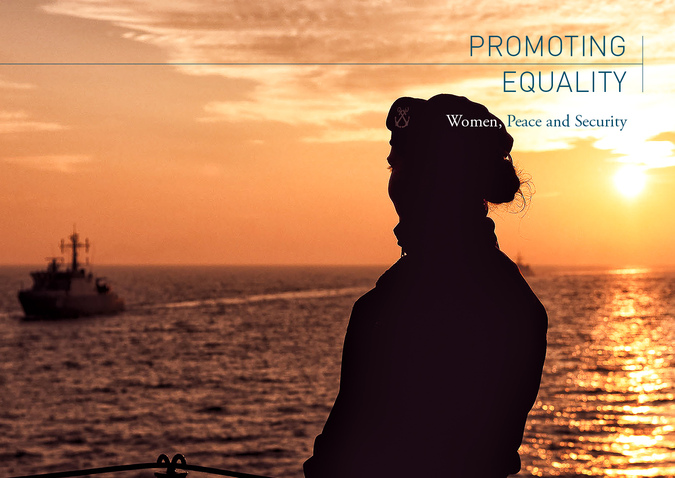 2020 marked the 20th anniversary of United Nations Security Council Resolution 1325 on Women, Peace and Security. The anniversary provided an opportunity to reflect on NATO’s achievements and to define the future focus and priorities of NATO’s work on Women, Peace and Security.
2020 marked the 20th anniversary of United Nations Security Council Resolution 1325 on Women, Peace and Security. The anniversary provided an opportunity to reflect on NATO’s achievements and to define the future focus and priorities of NATO’s work on Women, Peace and Security.
Read the chapter “Promoting Equality: Women, Peace and Security” in the Annual Report (PDF)
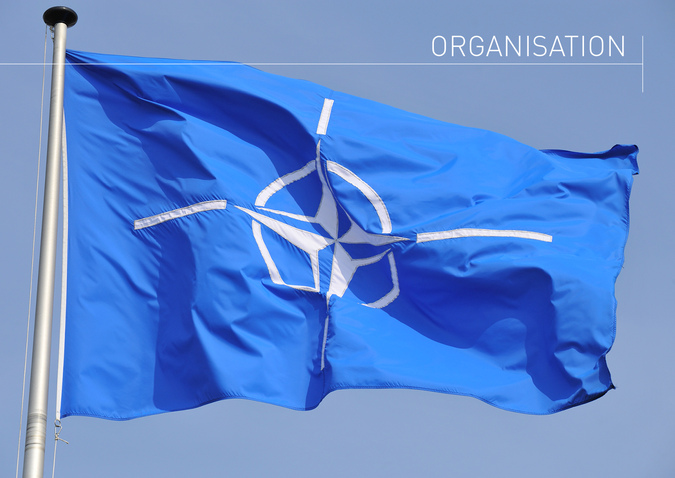 The NATO Headquarters in Brussels houses the Alliance’s International Staff and International Military Staff, along with 30 Allied delegations and military representations, 19 partner missions and staff from several NATO Agencies. It is the main forum for the discussions and consultations that shape NATO policy and practice.
The NATO Headquarters in Brussels houses the Alliance’s International Staff and International Military Staff, along with 30 Allied delegations and military representations, 19 partner missions and staff from several NATO Agencies. It is the main forum for the discussions and consultations that shape NATO policy and practice.

Resolute Support Mission
The Resolute Support Mission is a NATO-led mission to train, advise and assist the Afghan security forces and institutions. The mission was launched on 1 January 2015, immediately following the stand-down of the International Security Assistance Force.
Read the annex“Resolute Support Mission” in the Annual Report (PDF)
Kosovo Force
The NATO-led Kosovo Force (KFOR) mission contributes to maintaining a safe and secure environment and freedom of movement for all communities in Kosovo, as mandated by United Nations Security Council Resolution 1244 of 1999.
Read the annex“Kosovo Force” in the Annual Report (PDF)
Defence Expenditure of NATO Countries (2013 – 2020)
NATO collects defence expenditure data from Allies on a regular basis and presents aggregates and subsets of this information. Each Ally’s Ministry of Defence reports current and estimated future defence expenditure according to an agreed definition of defence expenditure. The amounts represent payments by a national government actually made, or to be made, during the course of the fiscal year to meet the needs of its armed forces, those of Allies or of the Alliance. In the figures and tables that follow, NATO also uses economic and demographic information available from the Directorate-General for Economic and Financial Affairs of the European Commission (DG-ECFIN), and the Organisation for Economic Co operation and Development (OECD).


